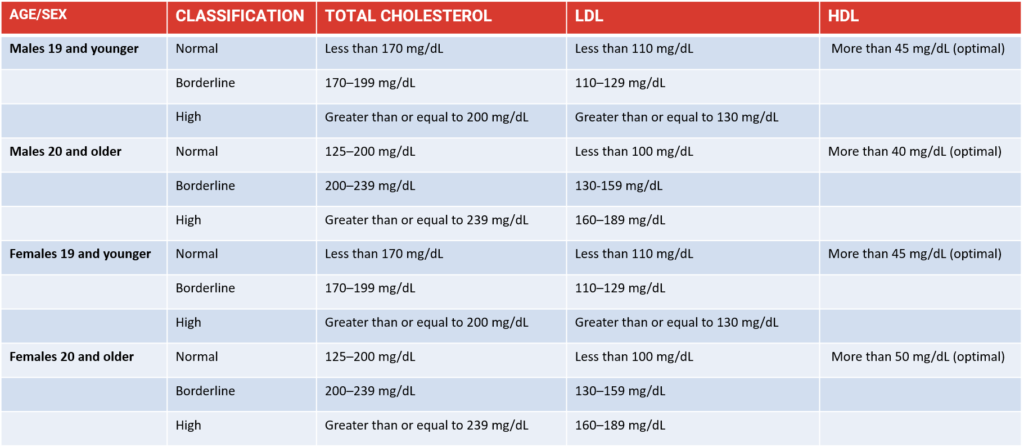Cholesterol Levels – Why Age is a Factor
Overview
Cholesterol is a waxy type of fat, or lipid, which moves throughout your body in your blood. Lipids are substances that do not dissolve in water, so they do not come apart in blood. Your body makes cholesterol, but you can also get it from foods. Cholesterol is only found in foods that come from animals.
It is known fact that we need some cholesterol to help building healthy cells, but an accumulation can be problematic, increasing the risk of atherosclerosis (the build-up of fats, cholesterol and other substances in and on the artery walls).
What are cholesterol levels?
The two major cholesterol-carrying lipoproteins are low-density lipoprotein (LDL) and high-density lipoprotein (HDL):
LDL cholesterol (LDL-C) is often referred to as “bad” cholesterol because too much of it can build up in your arteries and form plaques, which increases the risk of heart disease.
HDL cholesterol (HDL-C) is often referred to as “good” cholesterol as it carries cholesterol to the liver to be broken down and excreted.
Your cholesterol level is the combination of LDL and HDL, so ideally you may want your LDL to be lower and HDL higher.
Why age is a factor that can influence your cholesterol
As people get older, cholesterol levels rise naturally. For example, people who have gone through menopause may have higher LDL and lower HDL cholesterol levels.

Further, children with risk factor of a family history, such as whose parents or grandparents have had heart attacks or been diagnosed with blocked arteries at the age of 55 or earlier in males and 65 or earlier in females, should be tested for cholesterol between ages 2 and 10.
Here’s a table indicating healthy cholesterol levels by age. The following table was adapted from the Cleveland Clinic (“mg/dL” means “milligrams per deciliter). [Source]

What other factors affect cholesterol level?
A variety of factors can affect cholesterol levels. Some risk factors are within your control, while others are not:
Genetics – a family history of heart disease.
Sex – males often have higher levels of LDL, while women’s LDL level increase after menopause.
Weight – obesity increase the cholesterol levels.
Sedentary lifestyle – lack of physical activities.
Unhealthy diet – eating too many saturated and trans fat & not enough fiber.
Smoking – increases your bad cholesterol and reduces good cholesterol level.
SEE ALSO: Five Facts to Know About Your Cholesterol
Ending note…
It is highly important to keep your cholesterol levels in normal range to prevent heart diseases. If you have been recently diagnosed with high cholesterol levels, there are many healthy lifestyle changes that can help to get back them in healthier range.
Healthy cholesterol levels change with age because as we get older, cholesterol levels rise naturally. If lifestyle changes cannot keep your cholesterol levels at a healthy level, consult your cardiologist for any medication and treatment recommendations.


Recent Comments